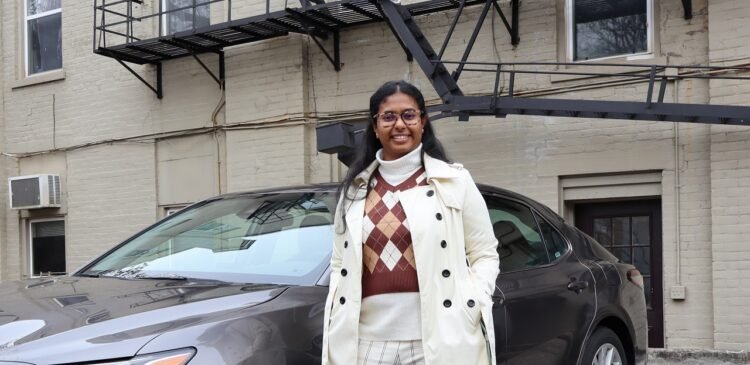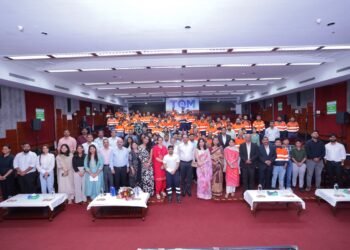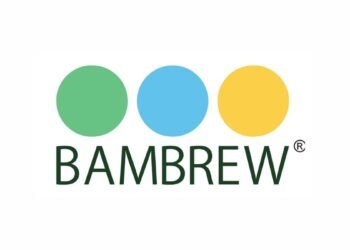
Words Manish Kumar
NEW DELHI (India CSR): In the field of autonomous aerial navigation, the ability to accurately localize unmanned aerial vehicles (UAVs) in GPS-denied environments has long been a critical challenge. As drone technology continues to advance, researchers have been relentlessly working on solutions that can ensure precise navigation even in the most difficult conditions. One such breakthrough has come in the form of an innovative particle filter, designed to revolutionize how quadcopters localize themselves in unknown and complex environments. By leveraging magnetic anomaly maps, this new technique enables UAVs to overcome the limitations of traditional GPS systems, opening the door to more reliable and efficient autonomous operations. This development marks a significant step forward in the quest for robust, real-time localization solutions for UAVs in dynamic and GPS-denied settings.
Priyanka Das has emerged as a leading expert in the rapidly evolving field of autonomous aerial navigation, focusing her research on solving one of the most pressing challenges in the domain: precise localization in GPS-denied environments. Her groundbreaking work on developing a particle filter for quadcopter localization, using magnetic anomaly maps, has garnered significant attention within the field. This innovative technique, which allows UAVs to navigate and localize themselves in unknown environments without relying on GPS, represents a significant leap forward in autonomous navigation technology.
Das’s exploration of advanced localization techniques began during her capstone project at the University of Cincinnati, where she worked on developing a particle filter to help a quadcopter localize itself using Earth’s magnetic anomaly maps. “This pioneering work contributed to the development of more resilient navigation systems for UAVs and also laid the foundation for the subsequent research in robust localization methods for autonomous systems in environments where GPS is either unreliable or completely unavailable” she mentioned.
Throughout her career, notably, she has led several high-impact projects, one of them being her work on developing and comparing different Bayesian filters for localization, as well as designing a Monte Carlo algorithm to improve navigation. These contributions have made a tangible impact, particularly in areas where traditional GPS-based systems fail, such as dense urban environments, indoor settings, or during natural disasters. Her work has made UAVs more capable of performing complex tasks, such as search and rescue operations, mapping, and environmental monitoring, in challenging conditions.
Moreover, the expert’s research has also led to key publications that have helped shape the field’s understanding of localization in autonomous systems. Among her most influential papers are “Localization of a Quadcopter in an Unknown Environment Using Magnetic Anomaly Maps of Earth,” “Robust Localization Techniques for Autonomous Systems in GPS-Denied Environments,” and “A Comparative Study of Kalman Filters and Particle Filters for Localization in Dynamic Settings for SLAM in Unknown Environments.” These works have not only highlighted her expertise but have also provided valuable insights into improving the accuracy and reliability of UAV navigation systems, which have applications across industries from defense to logistics.
Looking ahead, Das sees tremendous potential in integrating machine learning with traditional particle filter techniques to further advance UAV localization. Recent research is exploring how convolutional neural networks (CNNs) can be incorporated into particle filters, allowing UAVs to extract meaningful features from aerial imagery and further refine their localization accuracy. This integration of AI with established localization algorithms could lead to a new generation of more reliable and intelligent autonomous aerial systems, capable of adapting to dynamic and complex environments with greater ease.
The future of UAVs in GPS-denied environments is poised for significant transformation, and Priyanka Das’s work stands at the forefront of this evolution. Her contributions to particle filter-based localization, coupled with her vision for machine learning integration, promise to drive the next wave of advancements in autonomous aerial navigation, making UAVs more efficient, adaptable, and reliable in a variety of real-world applications.
About Us
Manish Kumar is a news editor at India CSR.
(Copyright@IndiaCSR)
(India CSR)






















